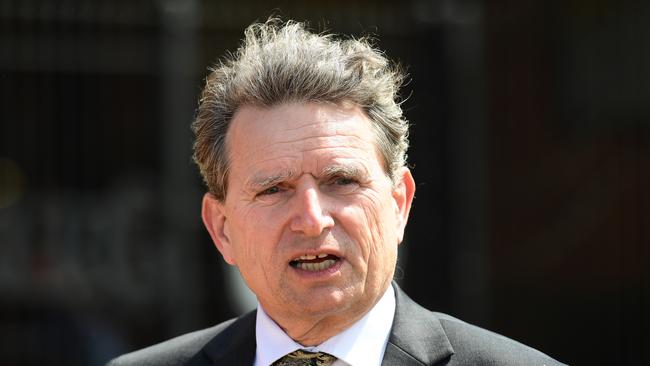Climate policy no barrier to trade deal with EU, says ambassador
The EU’s top representative in Australia says the Coalition’s climate change policies are unlikely to get in the way of an FTA.

The European Union’s top representative in Australia says the Coalition’s climate change policies are unlikely to get in the way of an EU-Australia free-trade agreement, amid French calls for “highly ambitious” action on climate change as part of the deal.
While the EU’s Paris Agreement targets are significantly more ambitious than Australia’s, EU ambassador Michael Pulch declared that “in general terms, we are on the same wavelength” on climate change.
“I think we all appreciate that Australia did stay firm when the US decided under the new administration to leave the Paris Agreement. That this was an important decision,” Dr Pulch said. “I think we generally agree on the objectives to have a global agreement on climate change. That is the basis for us working together.”
France has called for the proposed EU-Australia FTA to be “highly ambitious in terms of sustainable development”, as the Macron government pushes the international community to lift its efforts to fight climate change.
But under EU rules, at least four member states representing more than 35 per cent of the EU’s population would have to vote against the FTA to block it.
While not referring directly to France’s position, Dr Pulch said the EU was concerned that its trading partners were committed to meeting their nationally determined emissions targets, and that there was a national process to meet those targets.
He also noted the Paris Agreement’s in-built review timetable, which requires signatories to take stock of their emissions commitments in 2023. “Generally our wish is that countries review their own nationally determined commitments and see whether there is a ‘marge de manoeuvre’ (flexibility) to increase their ambition,” Dr Pulch said, suggesting Australia could use the process to strengthen its emissions commitment. Under the Paris Agreement, Australia has committed to cutting emissions by 26-28 per cent of 2005 levels by 2030. EU nations have agreed to a 40 per cent cut from 1990 levels by 2030.
Trade Minister Simon Birmingham said Australia would “pragmatically” consider EU requests for undertakings that went beyond commercial issues. But he said Australia stood by its “strong environmental track record”, and had always met or exceeded its climate change targets. “Our commitment to meeting our Paris targets is firm and resolute, which we willingly reiterate to anyone who wants to discuss it,” Senator Birmingham told The Australian. He said Australia would do a deal that was “overall in our best interests”, and was ambitious in terms of its commercial benefits.
“The EU’s market of 500 million consumers presents huge opportunities for Australian farmers and businesses if we can eliminate or reduce the impact of the EU’s quotas and tariffs to make our exporters more competitive,” he said.
The proposed protection of European food names is likely to cause more difficulty for Australia’s trade negotiators than the nation’s climate change policies.
Europe is seeking to protect 172 food names under the agreement, which would preclude Australian producers from using familiar names such as feta and parmesan.
Australia has made no commitments yet on the so-called “geographical indications”, declaring any decisions will be made at the end of the process in the nation’s best interests.



